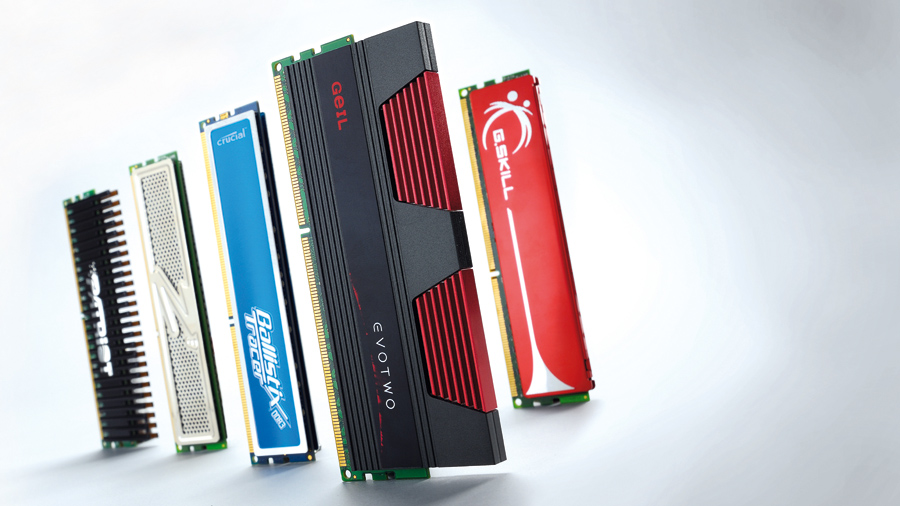Performance PC memory: is it worth upgrading?
Faster memory or bigger memory, that is the question!

How important is memory? Sure, RAM is one of the cheapest, easiest to install and generally most effective upgrades you can make to a system, but should you even bother?
And if you do decide to upgrade, is it worth picking faster memory over the bog-standard stuff, and should you be picking your memory based on latency, capacity or operating frequency?
So many options, and so much conflicting marketing…
It's not as if recent releases have made things easier to understand either. The majority of Haswell motherboards support memory speeds up to 3,000MHz, and the memory manufacturers are falling over themselves to release DIMMs at this speed, which may have you thinking that frequency is important once again; that there's a noticeable difference between these super fast DIMMs compared to the stock 1,333MHz sticks that the latest platforms support by default.
On the other fence, however, is the notion that memory latency is much more important, and that you should always go for the fastest latencies you can fi nd. Of course it isn't as simple as that, because the time it takes for the memory to respond to a request is linked to the speed at which the memory is operating. Even so, the theory goes that you should spend more to get memory that has faster latencies wherever possible.
Take a look at 'What's your latency?' below how to work out memory latency and how it links to the frequency at which it runs. Still, the questions remains: should you spend more to get faster memory, or go for 16GB instead of 8GB for the extra speed? We'll find out the definitive answer by putting a range of memory sticks through their paces in two very different rigs…
Tools of the trade
There are a couple of tools worth grabbing if you want to check that your memory is working as intended. The first is an old favourite, CPU-Z, which you can grab for free from www.cpuid.com. The Memory tab gives you the low-down on your current memory settings, while the SPD tab shows you what your memory is actually capable of.
Sign up for breaking news, reviews, opinion, top tech deals, and more.
The other tool worth grabbing is SiSoftware Sandra, which is the benchmark we've used here to ascertain the memory bandwidth your machine has access to. Again, it's free, and it boasts plenty of other tests too. Grab it from www.sisoftware.co.uk.
Technical analysis
In order to test what difference the memory speed had on our test rigs, we ran a number of gaming benchmarks alongside SiSoftware Sandra 2013 - which was primarily used to ascertain the memory bandwidth offered. The benchmark figures pretty much speak for themselves - there's barely any difference between the standard memory results and any of the 'upgraded' solutions.
That's true whether we're talking about going from 8GB to 16GB or investing in some seriously speedy stuff. We measured minimum, maximum and average framerates across all the benchmarks that supported such information, and the only area where we saw any increase at all was in the maximum framerates in Bioshock Infinite.
The problem is, those figures don't really affect the perceived smoothness of your games. We thought we'd see some improvement in the minimum framerates, but the differences are all generally within one per cent of the base scores. The only benchmark that really showed a difference was SiSoftware Sandra 2013. Here we saw the kind of improvements we would expect from cutting edge memory, with big improvements stepping up in line with the operating frequency or a drop in latencies.
The fact is, when it comes to gaming, today's processors have a surfeit of bandwidth, and just giving them more won't do anything on its own. There are specialised cases where having a lot more memory makes a difference, but for general use and gaming we recommend spending your money where it counts - on your graphics card and processor.



- Now why not read Move to SSD: migrate your PC to solid state